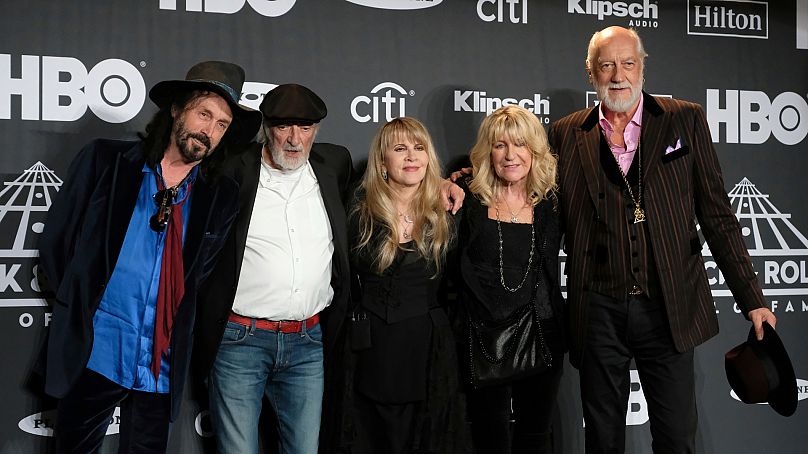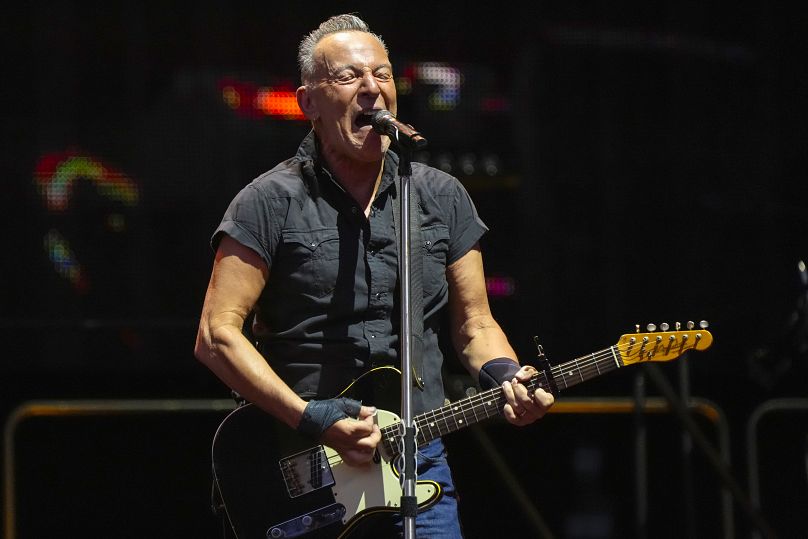The Fleetwood Mac star joins a long list of musicians selling their catalogues to investment firms.
Christie McVie’s estate has sold her music rights to HarbourView Equity Partners. McVie was a keyboardist and vocalist for the legendary band Fleetwood Mac, for whom she wrote the hits ‘Don’t Stop’, ‘Everywhere’ and ‘Little Lies’.
 ADVERTISEMENT
ADVERTISEMENT
 ADVERTISEMENT
ADVERTISEMENT
McVie died on 22 November 2022 aged 79. Her estate made the deal with the firm for an undisclosed sum of money.
“Christine's remarkable talents played an integral role in shaping Fleetwood Mac's sound,” HarbourView chief executive Sherrese Clarke Soares said. “We are honoured to uphold that legacy as we welcome Christine's lifetime of work with the band into HarbourView. Christine is a decorated and iconic legend in the history of rock'n'roll. She is a global treasure. We hold her works with pride.”
Mick Fleetwood, a co-founder of the band, also sold his portion of the group’s recordings in 2021. Fleetwood made a deal with the German publishing company BMG.
Both deals made haven’t had prices attached to them. Fleetwood Mac’s American singer Stevie Nicks sold an 80% stake in her songwriting catalogue to the publisher Primary Wave in 2020 for a cool $100 million (€95 million). It’s safe to say that McVie’s estate will have sold for a pretty penny.
Money, Money, Money
These deals are part of a wide industry trend for legacy music acts to sell off the rights to their works to publishing and investment firms.
The deals give the buyers complete control over the use of the music. This means they collect royalties from plays – radio, Spotify, etc – as well as the rights to licence the songs for commercial use.
It may seem a cynical move to sell the rights to your music. After all, the entire re-recording project that superstar Taylor Swift is currently going through is the result of her attempt to vie for control of her music rights from music executive Scooter Braun. However, for legacy acts like Fleetwood Mac, it can make a lot of sense.
Across the music industry, it’s generally agreed that most of the money is in touring these days. As streaming royalties don’t produce wealth equivalent to the days of physical media, musicians have pivoted to rely on expensive gig tickets and merchandise.
For a band like Fleetwood Mac, and particularly in the case of McVie’s estate, touring isn’t a long-term money maker anymore. The option to “sell out” can ensure that the families of these stars benefit financially from their success for generations to come. This is especially the case given the future profitability of streaming royalties and even licensing aren’t guaranteed.
Tangled up in Green Notes
Fleetwood Mac’s members aren’t alone in making these deals.
Two of the biggest deals in history for their music rights were made by some of America’s greatest songwriters. Folk legend Bob Dylan sold the rights to his 600+ song catalogue to Universal Music for $400 million and the rights to his master recordings to Sony for $220 million.
By comparison, the $500m that Bruce Springsteen got for his great American songbook looks almost paltry. It’s still the second highest amount that anyone’s ever got for their music rights though and will keep generations of Springsteen’s from worrying about dancing in the dark.
Other major stars who have sold the rights to their music include Paul Simon ($250 million); David Bowie ($250 million); Red Hot Chili Peppers ($140 million); Bob Marley ($50 million); and Tina Turner ($43 million).
It’s not just the golden oldies though. Younger stars with potentially decades left to write and perform their music have also taken the same route. Justin Bieber sold the rights to his music to investment firm Hipgnosis this year for $200 million. Katy Perry one-upped Bieber a few months later by selling the rights to her five studio albums to Litmus Music for $225 million.
There’s clearly a lot of money to be made by these big names selling the rights to their catalogues to these investment firms. The question is, what’s in it for the firms? For such huge numbers, you’d presume they’re doing the due diligence to ensure the lasting profitability of these deals. Without greater insight into the licensing deals the artists can command, it’s hard to say whether there is more than $500 million worth of commercials featuring ‘Born in the USA’.
Perhaps that’s being too pessimistic to the value these stars can still attract. As some have stipulated, it might just be that by making these huge lump sums, the artists and their succeeding estates can sit back and enjoy the money without bothering with all the admin licensing deals require.












